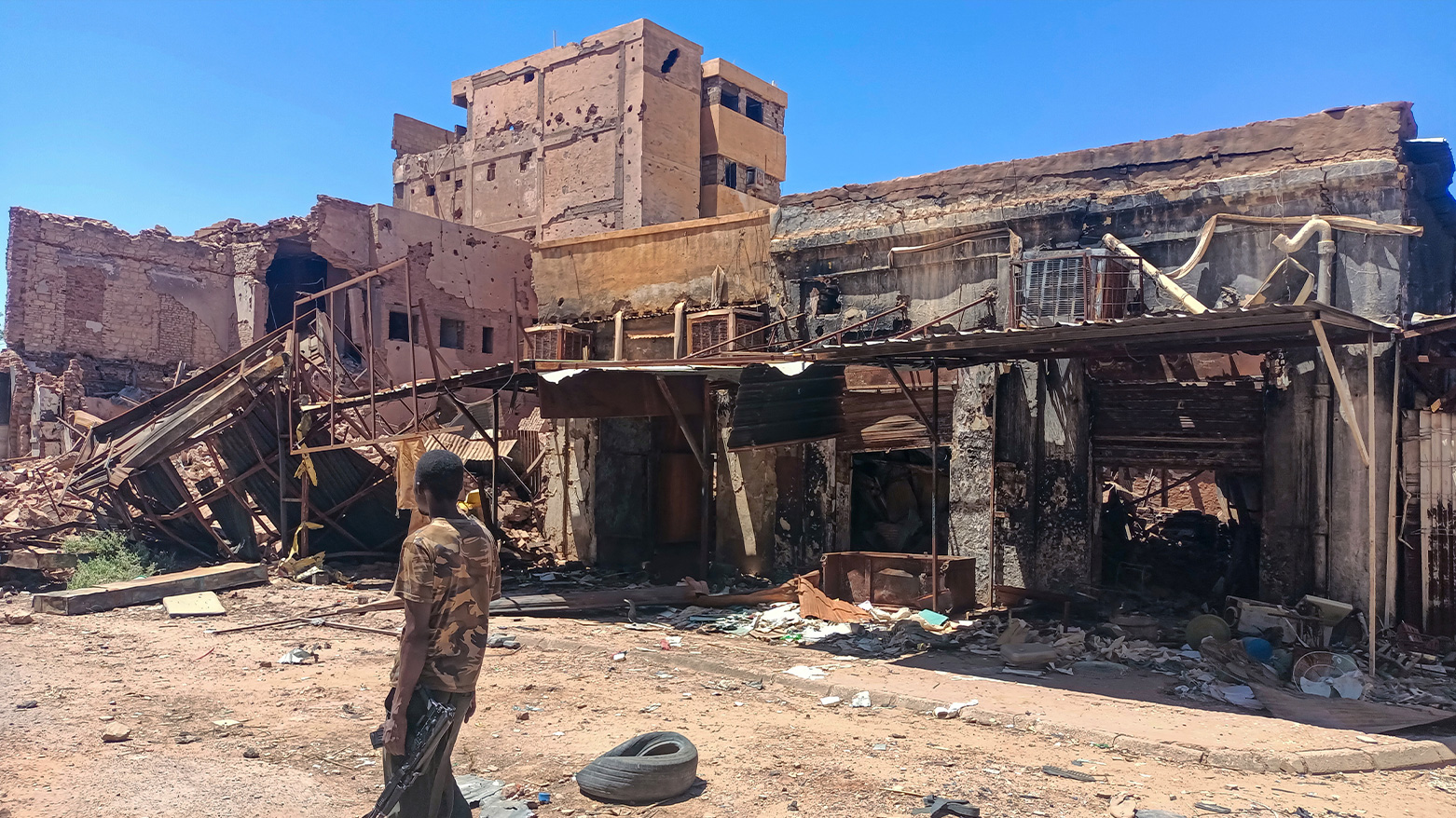Sudanese Army Declares Full Control Over Khartoum
The RSF has rejected claims of defeat, insisting their withdrawal was strategic. In its first statement since the army's offensive began, the RSF vowed there would be “no retreat and no surrender.” A spokesperson added: “We will deliver crushing defeats to the enemy on all fronts.”

By Kamaran Aziz
ERBIL (Kurdistan24) – In a potentially pivotal moment in Sudan’s devastating civil war, the Sudanese army announced on Thursday evening that it has fully regained control over the capital, Khartoum, nearly two years after it was lost to the paramilitary Rapid Support Forces (RSF). The victory follows a weeklong offensive that saw the army retake the presidential palace, the airport, and other strategic sites.
Army spokesman Brig. Gen. Nabil Abdullah formally declared the development in a statement late Thursday, saying: “Our forces today have... forcibly cleansed the last pockets of the remnants of the Daglo terrorist militia in Khartoum locality.”
The army’s characterization refers to the RSF, led by General Mohamed Hamdan Daglo, widely known as Hemeti, which has been engaged in fierce conflict with the Sudanese Armed Forces (SAF) since April 2023.
Standing inside the presidential palace, army chief General Abdel Fattah al-Burhan had, just a day earlier, declared Khartoum “free” of RSF fighters, signaling what could be a turning point in the conflict. This marks the first time in nearly two years that the army has reasserted control over the capital, underscoring the momentum of a counteroffensive that has been steadily pushing through central Sudan.
According to military sources and eyewitnesses cited by AFP, RSF fighters were seen retreating across the Jebel Awliya bridge—believed to be their last escape route from the greater Khartoum area. This rapid withdrawal follows significant army gains, particularly the storming of the presidential palace last week.
However, the RSF has rejected claims of defeat, insisting their withdrawal was strategic. In its first statement since the army's offensive began, the RSF vowed there would be “no retreat and no surrender.” A spokesperson added: “We will deliver crushing defeats to the enemy on all fronts.”
Commenting to Sky News Arabia, RSF advisor Mustafa Muhammad Ibrahim said the withdrawal from Khartoum was tactical, aimed at regrouping. “The palace is now nothing more than a pile of ashes. The same goes for the airport. There is no strategic location left in Khartoum worth fighting over,” he stated.
While the Sudanese military may be celebrating its Khartoum offensive, the wider conflict remains far from resolved. Just hours after Burhan’s symbolic return to the presidential palace, the RSF announced a new “military alliance” with the Sudan People's Liberation Movement-North (SPLM-N), a powerful rebel group that controls large parts of South Kordofan and Blue Nile, near the Ethiopian border.
The SPLM-N, led by Abdelaziz al-Hilu, had previously clashed with both the RSF and army but last month signed a political charter with the RSF to establish a rival government.
By Thursday evening, witnesses in Blue Nile’s capital, Damazin, reported drone attacks on the city’s airport and the nearby Roseires Dam—marking the first time those strategic sites had been targeted in the war. Sudan’s 4th Infantry Division stated on Friday that its air defenses had successfully intercepted the drones.
The broader war, now in its second year, has killed tens of thousands of people and displaced over 12 million, creating what the International Rescue Committee describes as the “biggest humanitarian crisis ever recorded.”
The conflict has effectively split Africa’s third-largest country in two: the army controls the north and east, while the RSF retains dominance over much of the south and nearly all of the vast western Darfur region.
Khartoum’s recapture may boost the army’s morale and shift the dynamics of the war, but the RSF’s new alliances and continued operations elsewhere underscore the enduring volatility of the conflict. As both sides prepare for future offensives, Sudan remains a nation on the edge, its fate uncertain amidst a war that has shown no signs of abating.